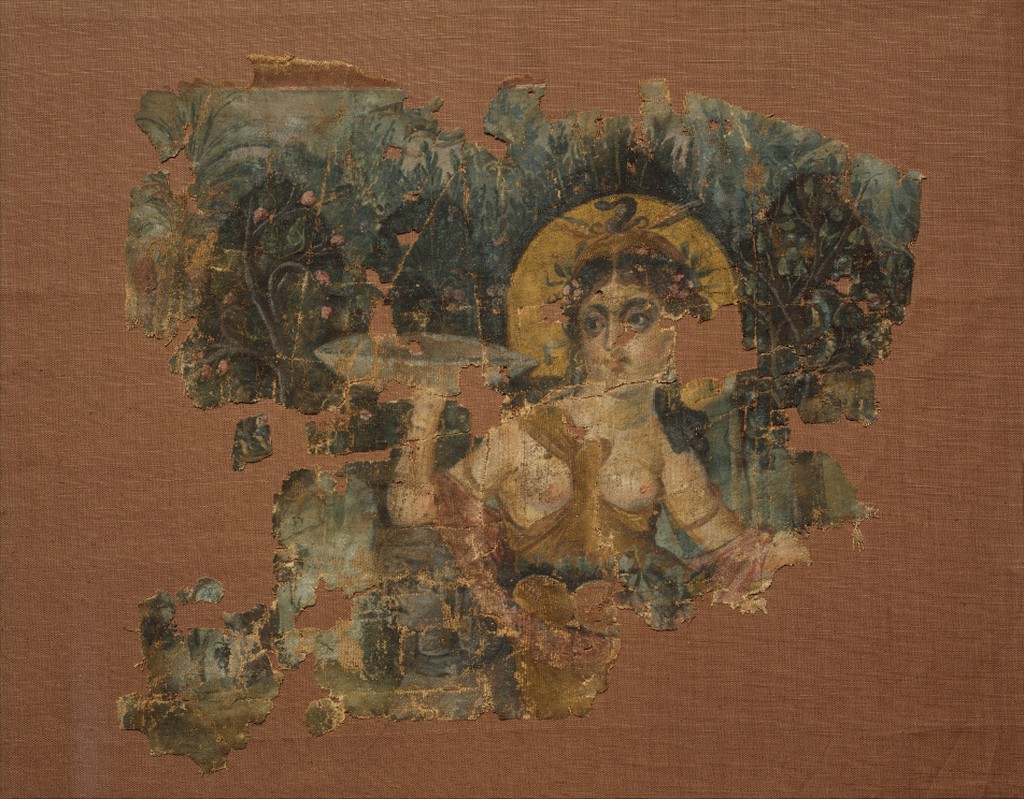Euthenia on:
[Wikipedia]
[Google]
[Amazon]
Euthenia (; , ''Eustheneia'') was the  She is also a part of the Egyptian and Roman pantheon. During Ptolemaic times, she became the consort of Nilus. Her first appearance on Egyptian coins date back to the last decade of BC.
On Roman coins, Euthenia is often compared to
She is also a part of the Egyptian and Roman pantheon. During Ptolemaic times, she became the consort of Nilus. Her first appearance on Egyptian coins date back to the last decade of BC.
On Roman coins, Euthenia is often compared to
ancient Greek
Ancient Greek includes the forms of the Greek language used in ancient Greece and the ancient world from around 1500 BC to 300 BC. It is often roughly divided into the following periods: Mycenaean Greek (), Dark Ages (), the Archaic peri ...
female spirit of prosperity. Her opposite was Penia
In Plato's ''Symposium'', Penae ("deficiency" or "poverty" in Latin) or Penia (; "deficiency" or "poverty" in Greek) was the personification of poverty and need. She married Porus at Aphrodite's birthday and was sometimes considered the mother ...
and her sisters entailed Eucleia
In Greek mythology, Eucleia or Eukleia (Ancient Greek: Ευκλεια) was the female personification of glory and good repute.
Family
Along with her sisters, Eupheme, Philophrosyne and Euthenia, Eucleia was likely regarded as a member of the ...
, Philophrosyne
Philophrosyne was the ancient Greek female spirit of welcome, friendliness, and kindness. Her sisters were Euthenia, Eupheme, and Eucleia. Along with her sisters, she was regarded as a member of the younger Charites. According to the Orphic fr ...
, and Eupheme. Along with her siblings, she was regarded as a member of the younger Charites
In Greek mythology, the Charites ( ), singular ''Charis'', or Graces, were three or more goddesses of charm, beauty, nature, human creativity, goodwill, and fertility. Hesiod names three – Aglaea ("Shining"), Euphrosyne ("Joy"), and Thalia ...
. According to the Orphic
Orphism (more rarely Orphicism; grc, Ὀρφικά, Orphiká) is the name given to a set of religious beliefs and practices originating in the ancient Greek and Hellenistic world, associated with literature ascribed to the mythical poet Orpheus ...
fragments, her parents were Hephaestus
Hephaestus (; eight spellings; grc-gre, Ἥφαιστος, Hḗphaistos) is the Greek god of blacksmiths, metalworking, carpenters, craftsmen, artisans, sculptors, metallurgy, fire (compare, however, with Hestia), and volcanoes.Walter Burk ...
and Aglaea
Aglaea () or Aglaïa (; grc, Ἀγλαΐα, lit=festive radiance) is one of the three ''Charites'' or ''Gratiae'' (Graces) in Greek mythology.
Family
According to Hesiod, Aglaea is the youngest of the Charites, the three daughters of Zeus a ...
.
 She is also a part of the Egyptian and Roman pantheon. During Ptolemaic times, she became the consort of Nilus. Her first appearance on Egyptian coins date back to the last decade of BC.
On Roman coins, Euthenia is often compared to
She is also a part of the Egyptian and Roman pantheon. During Ptolemaic times, she became the consort of Nilus. Her first appearance on Egyptian coins date back to the last decade of BC.
On Roman coins, Euthenia is often compared to Abundantia
In ancient Roman religion, Abundantia (), also called Abundita or Copia, was a divine personification of abundance and prosperity. The name Abundantia means plenty or riches. This name is fitting as Abundantia was a goddess of abundance, money-flo ...
, the personification of abundance and prosperity, and Annona, the personification of the grain supply to Rome.
References
Personifications in Greek mythology Greek goddesses Children of Hephaestus {{Greek-deity-stub